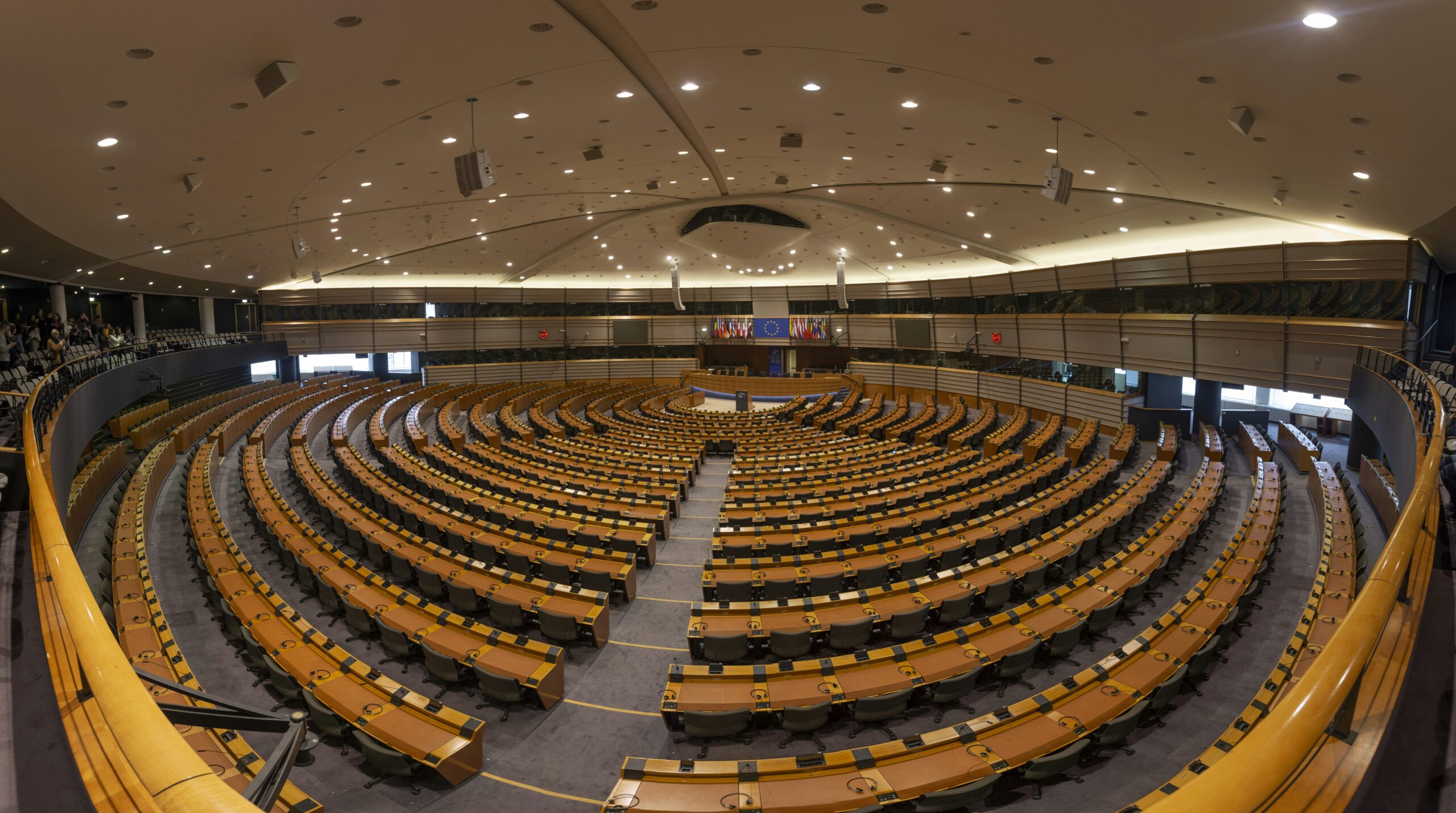In the midst of his legal battles, Donald J. Trump has found a way to turn them into a political reality show. While his trials are not being televised, that hasn’t stopped him from seeking out the cameras or bringing his own, to showcase his legal complaints and re-election arguments. As a former reality-TV host and current presidential candidate, Trump understands the value of capturing the attention of the media. Not only does this give him a platform to present himself as a victim or a fighter, but it also provides television networks with the conflict and visuals they crave. Despite being notorious for fabrications and conspiracy theories, Trump continues to use his TV appearances as a means to control the narrative and maintain a steady stream of headlines.

Background
Donald J. Trump’s civil-fraud case in New York
In a civil-fraud case in New York, Donald J. Trump’s businesses were ordered to pay a penalty of $355 million. However, this case was not televised, leaving Trump to manipulate the narrative outside of the courtroom.
Civil trial for the defamation of E. Jean Carroll
Similarly, Trump’s civil trial for the defamation of E. Jean Carroll did not receive TV coverage. This defamation suit emerged after Carroll accused Trump of sexually assaulting her in the 1990s.
Looming federal election-interference trial
Although it is uncertain whether Trump’s looming federal election-interference trial will be televised, it is highly unlikely. Nonetheless, Trump has a history of seeking out the cameras and turning his legal cases into one-sided TV productions and campaign ads.
Trump’s One-Sided TV Productions
Seeking out the cameras during his trials
Donald J. Trump has consistently sought out the cameras during his trials. Despite being a defendant, he uses these appearances as an opportunity to recast himself as a victim or fighter. This strategic move allows him to shape the narrative surrounding his legal cases.
Turning legal cases into TV productions and campaign ads
Rather than approaching his trials as legal procedures, Trump has turned them into one-sided TV productions and campaign ads. By using the medium of television, he can control the narrative and present himself in a favorable light to his base.

TV News and Conflict
TV news craving conflict and active visuals
Television news relies on conflict and active visuals to engage viewers. Trump’s appearances during his trials provide the perfect combination of sound, fury, and B-roll footage that news outlets crave. His presence generates excitement and drama, captivating audiences and driving up ratings.
Trump’s appearances providing sound, fury, and B-roll
One of the reasons why TV news networks are eager to feature Trump’s appearances during his trials is because he provides the perfect combination of sound, fury, and B-roll footage. His outspoken nature and controversial statements are bound to generate headlines and keep viewers hooked.
Unfiltered Access to Airwaves
Trump leveraging his on-camera tirades for unfiltered access
Despite his reputation for fabrications and conspiracy theories, Trump has been able to leverage his on-camera tirades during his trials to gain unfiltered access to the airwaves. Television networks, hungry for ratings and controversy, continue to provide him with airtime, giving him a platform to reach millions of viewers.
Networks giving him airtime despite his reputation for fabrications and conspiracy theories
Despite his well-documented reputation for fabrications and conspiracy theories, television networks have continued to give Trump airtime. This is a testament to his ability to command attention and the symbiotic relationship between his appearances and media coverage.

Trump’s Appearance in a Manhattan Criminal Case
Live coverage of his statement on the trial date
When a judge set a trial date for his Manhattan criminal case stemming from a hush-money payment to a porn star, cable news networks went live to cover Trump’s statement. In this instance, Trump accused the case of being a Biden-campaign plot to steal the election, further fueling controversy and drama.
Accusing the case of being a Biden-campaign plot to steal the election
During his statement to the cameras, Trump accused his Manhattan criminal case of being a Biden-campaign plot to steal the election. This claim adds another layer of intrigue and controversy to his legal troubles, ensuring that his appearance garners media attention.
Trump’s Response to the Civil-Fraud Ruling
Speaking to the cameras at Mar-a-Lago
After the civil-fraud ruling, Trump spoke directly to the cameras at his residence and private club, Mar-a-Lago. This allowed him to control the narrative and present his side of the story directly to the public.
Claiming the case is politically motivated and citing his election poll numbers
During his statement at Mar-a-Lago, Trump claimed that the civil-fraud case was politically motivated. He cited his election poll numbers as evidence, attempting to shift the focus away from the ruling and redirect it towards his political aspirations.
Cameras and Media Attention
Trump’s ability to command attention from television producers and networks
Trump has a unique ability to command attention from television producers and networks. His status as a former president, a candidate, and a high-profile defendant makes his on-camera appearances newsworthy and highly sought after.
The symbiotic relationship between Trump’s appearances and media coverage
The relationship between Trump’s appearances and media coverage is symbiotic. Television networks benefit from the ratings boost and drama generated by his statements, while Trump gets unfiltered access to millions of viewers, allowing him to shape the narrative to his advantage.
Critics of Trump’s Reality Show Approach
Arguing that Trump is exploiting the legal system for his own political gain
Critics argue that Trump is exploiting the legal system for his own political gain. By turning his trials into televised events, he is able to manipulate public opinion and present himself as a victim or fighter, regardless of the facts of the case.
Questioning the role of television in amplifying his message
Trump’s use of television to amplify his message raises questions about the role of the medium in shaping public perception. Critics argue that by providing him with airtime, television networks are complicit in his attempts to manipulate the narrative and distort the truth.
Implications for Future Cases
Examining the potential consequences of Trump’s televised recriminations
The televised recriminations of Trump’s legal cases have far-reaching implications for the future of the justice system. By using the medium of television to shape public opinion, Trump sets a precedent that could impact the fairness and impartiality of future cases.
Considering the impact on public perception and legal proceedings
The televised nature of Trump’s trials has the potential to impact public perception and the integrity of legal proceedings. The constant exposure to Trump’s statements and tactics can sway public opinion and create a biased view of the legal system.
Conclusion
Reflecting on the significance of airing Trump’s trials
The decision to air Trump’s trials has significant implications for the intersection of media and politics. It highlights the influence of television in shaping public opinion and raises questions about the role of the media in amplifying certain voices over others.
Analyzing the broader implications for the intersection of media and politics
The televised nature of Trump’s trials underscores the complex relationship between media and politics. It highlights the power of visual storytelling and raises important questions about the responsibility of television networks to provide equitable coverage and maintain journalistic integrity. The impact of Trump’s one-sided TV productions will continue to be debated, as society navigates the evolving landscape of media and politics.

